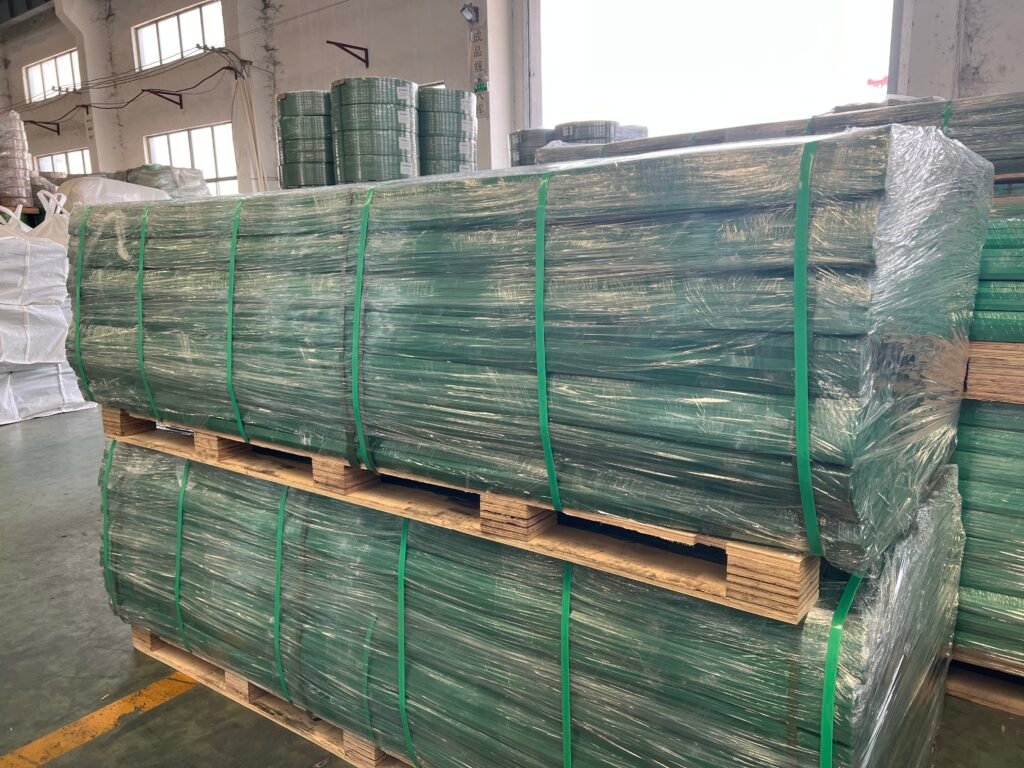Pre Cut PET Strapping

Pre cut Polyester Strapping for Synthetic Fibers and Cotton is a high-performance strapping material that is pre cut into fixed lengths with pre-attached buckle. It is designed for lightweight, fluffy, or highly compressed goods such as synthetic fibers and cotton, balancing high strength and gentle protection characteristics.
Advantage VS. Other Strapping
- Vs. traditional steel strap: no risk of corrosion and pollution, avoiding metal debris from mixing into fibers, ensuring the cleanliness of goods.
- Vs. ordinary plastic strap: higher tensile strength and weather resistance, suitable for high-pressure cotton packaging needs.
- Vs. Non pre cut strap: reduces operation time by more than 30%, especially suitable for high-frequency operations on assembly lines.
Pre-Cut PET Strapping Feature:
- Precise Pre Cutting
-Pre cut straps according to standard lengths (such as 2m, 3m), eliminating on-site cutting steps, improving packaging efficiency, and reducing material waste. - Anti Damage Surface Layer
-Smooth surface or covered with protective coating to avoid scratching sensitive materials such as synthetic fibers and cotton, and maintain the integrity of the appearance of the goods. - High Elasticity and Low Ductility
-The stretching rate is less than 5%, ensuring long-term stability of tightness after bundling and adapting to the characteristic of cotton being prone to expansion after compression. - Lightweight and High-Strength
-The tensile strength reaches 800-1500kg, and the weight is 80% lighter than metal strips, reducing the overall packaging burden. - Weather and Moisture Resistance
-Moisture resistant and UV resistant, suitable for outdoor storage or shipping environments, to prevent mold growth. - Quick Fastening
-Compatible with manual tools such as buckles and hot melt guns, requiring no complex equipment and easy to operate.



Pre-Cut PET Straps Application:
- Chemical Fiber Industry:
-Bundle synthetic fiber rolls such as polyester and nylon to prevent looseness;
-Pack fluffy synthetic fiber products (such as non-woven fabrics and filling cotton) and compress the volume to reduce transportation costs. - Cotton Processing:
-Compressed cotton bales (such as lint and seed cotton) are fixed to adapt to the operation of ginning machines or hydraulic balers;
-The container for exporting cotton is reinforced in layers to prevent moisture and loose stacking. - Textile Industry:
-Fixed stacking of finished garments and fabric rolls to avoid friction damage during transportation;
-Recycling and packaging of waste textiles to improve sorting efficiency. - Agriculture and Storage:
-Replace traditional hemp rope or iron wire for tying cottonseed and straw, safe and without the risk of rusting.
